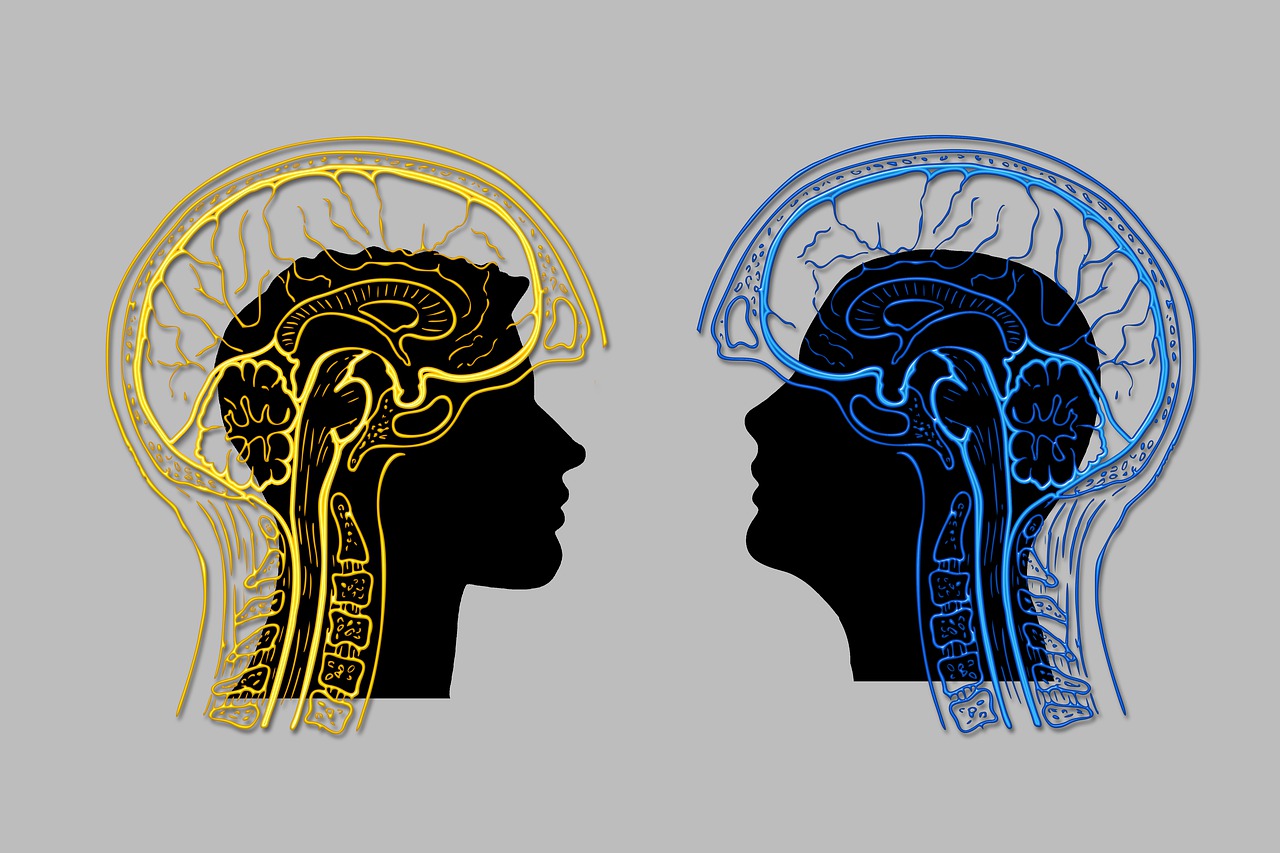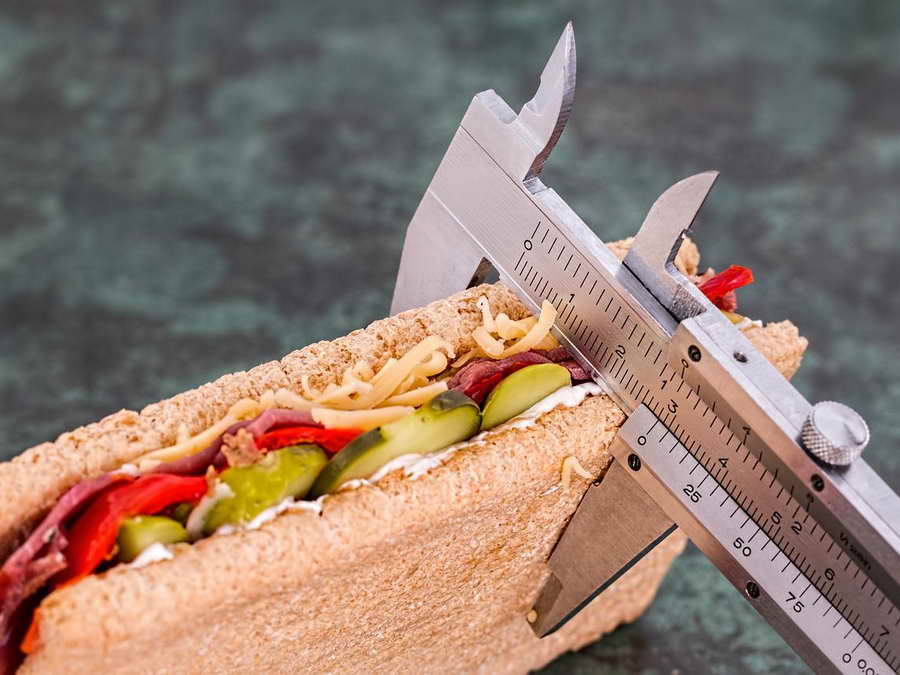The Dietitian Became Needed
“What is your relationship to food?” is essentially what I was asked. What kind of hippy-dippy talk is that? “How do I feel about food?” More of the same. I like it and I eat too much of it. I mean, that’s essentially why I started talking to a dietitian, right? I’m prone to analyzing things, to begin with, but some of this jargon seemed to be a little flakey.
Boy, was I wrong.
Turns out that the food in our lives and our mental health are intertwined–for some more than others, I would guess. However, what started in my mind as a way to work on weight control and blood sugar levels has turned out to be an essential part of my mental health maintenance routine. This came as quite a surprise.
In recent years we have seen increasing public discussion on personal mental health. As more people share their stories, it pushes us farther along the path of acceptance, which can lead to easier access to treatment. It is in this vein that I would like to share part of my story.
So yes, I like to eat. I have my mom to thank for that; she’s a great cook. Food was always, and still is, plentiful on her table. During my university years, I really began to look forward to my meals, whether it was pizza, Mexican food in a restaurant, or something homecooked. It even drove me to learn to cook once I realized if I wanted to eat well on my own, I needed to know how to make stuff.
The older I get, the more sedentary I become. I like to research and write, and I build websites for work. These things involve chairs and desks. I don’t particularly like to exercise just for the sake of “getting in shape”. Added to that is a diagnosis of depression and anxiety. Since I’m not inclined to turn to drugs or alcohol to self-medicate, food became my mood regulator.


On the sciencey side of things, this makes plenty of sense. I look forward to eating because it causes the body to release chemicals that stimulate the pleasure centres of the brain. The equation of this part of my life looks something like this:
(Depression x Anxiety) + Sedentary Life = Unhealthy Eating Habits.
This is a formula that eventually ended up increasing my girth and putting me at risk for diabetes. That’s when I reluctantly, after some persuasion, decided to meet with a dietitian.
Resistance is Futile
I had resisted working with a dietitian for a few years. Mostly because I knew what I would be told. It was going to be about diets, exercise, and a list of food I can/can’t eat. I just knew that I was going to be asked to give up everything I liked to concentrate on a regimen of green leafy stuff and tofu. I also knew I wasn’t willing to do anything like that. I am aware enough to know that setting myself on a path leading to failure wasn’t going to be good for anyone. However, there was enough concern from my wife and my doctor about rising numbers, both in blood sugar and on the scale, that I was convinced to at least give it a try.
I remember my first meeting with Hillary Stevenson, a dietitian from the Chatham-Kent Family Health Team. I had my guard up. She was friendly, which I expected. I guessed that the strategy in the Dietitian Playbook was to put me at ease and build rapport. That would be Step 1. The next phase I was pretty sure involved giving me a list of things I wouldn’t want to do and another list of things that I loved to eat but had to give up. These lists would be couched in a vague warning that if I didn’t, I was sure to die a slow and horrible death in the near term. Between the friendliness and the dire warnings, she’d be trying to get me to buy into her lists. It’s part of the packaging.
My expectations could not have been further from reality and two years later I am still working with her. In that first meeting, she asked more questions about me than about food or my habits. After about an hour I left with a chart that showed the relationship between various foods, sugars, and metabolism. I also left with a challenge to pick just “one thing and make a small change.” We would talk in a month.
I don’t know if she realized how stubborn I can be. Of course, I read the chart. I did some research. I saw the logic and clear benefits. And I just kept on doing what I was doing. Pizza, for me, is nearly an addiction, burgers are the food of angels, and even the tacos at Taco Bell have a place in my heart, right next to an abundance of cholesterol. At the second meeting, I was dreading having to admit I hadn’t really tried.
Yet I was honest, and the resulting discussion opened my eyes. It was then that I began to understand that people do in fact have emotions, relationships and feelings centred around food. It is not just sustenance. It is not just chemical reactions. It is also memories of home, the loneliness of eating alone, the stress of having to provide for and cook for a family, and so much more.
Crucially, what I also began to grasp in that second meeting was that there would be no judgement. We talked about why I didn’t try. I asked questions based on some things I had learned. And she suggested again just one thing to do differently.
And then I did it.
That was the start of progress. Hillary and I have monthly appointments, which in the new Covid-19 reality are conducted on the phone. Our time usually involves her checking in with me about family, work, and life in general. Sometimes, we hardly even discuss food and eating. But each month she provides me with three things: accountability, achievable challenges, and support.
Support is possibly the key factor. Everyone has eating habits. Changing them, like changing any habit, is a process that “rewires” your brain. It is a mental health process. This means that the energy involved in making that change is also competing with whatever else is going on in your brain.
So, support might be asking how my month was, and then unpacking the good and the bad. Support might be talking out a situation or decision with work that is weighing heavily on my mind. It might also be about relationships in my life that are sometimes easy, sometimes complicated. Pretty much anything that requires extra mental energy to sort out, she is a once-a-month sounding board.
This is a practical example of how food habits are absolutely related to mental health. If she doesn’t know what else is going on, she can’t right-size her suggestions for the next month. If she can help relieve some of the stress or anxiety, she knows I’m likely to put more effort into accomplishing the goals we set together.
Every month, she sets a challenge for me. I have noticed that Hillary does a good job keeping notes and that she has a plan in mind. She waits for the right time to move things forward and then issues an achievable challenge, which usually is a small change to a habit or way of thinking. Part of her support, I think, gives her the opportunity to find the openings to deliver the challenges. When it really works, she words the challenge in a way that rephrases something I had already said I wished was different. She’s good at it, as I suspect most dietitians would be.
The challenges could be something like: “Eat more protein than carbs for breakfast because it helps with regulating blood sugar levels.” Nothing is done in a vacuum; every challenge has a purpose. It may not result in a huge behaviour change, but lots of little ones are easier to stick with, and they all add up.
Things I have been able to do:
- Greatly decrease my consumption of sugary drinks
- Increase my intake of water
- Be thoughtful about when to consume things that spike blood sugar
- Understand the complex emotions and habits that come with food and eating
That’s not an exhaustive list, but it is, perhaps, the top four things I am most proud of making progress on.
Finally, working with Hillary provides accountability. We celebrate the successes, she gives lots of positive reinforcement when challenges are underway or habits have been changed. At the same time, there is no judgement when something doesn’t happen. At that point, time is spent understanding the barriers or even modifying or changing the process.
The best part is, “I just didn’t do it” is allowed as an answer. Again, because this is tied up in mental health, not having the “oomph” to begin a habit change is, actually, understandable. Too often we see accountability in the light of success or failure; positive and negative. This, however, is a good kind of accountability. It is the kind where honesty with Hillary also means honesty with myself. This allows me to regroup and move forward.
The list of things Hillary has told me I can’t do is pretty small. I can list them here:


Yeah, that’s it. If I want to eat something, I eat it. There is a reason the brain is driving the craving. What might not be nutritious for your body at that moment might be what your brain needs. The whole thing is that she has taught me how to make more conscious decisions than in the past. It is the sum total of the choices that produce the results we find in our monthly check-ins.
Progress is Made
Working with a dietitian doesn’t feel like it’s all about weight loss or blood sugar levels. Those are my desired outcomes, but they are achieved by sneaking up sideways to the problem. It’s really about taking the time to understand how I consciously and unconsciously approach food. It’s about making small changes and building on them. It’s about a process, not an end.
After two years of working with her, Hillary knows about my family, my work, and the things I enjoy. She knows about my depression and anxiety. Most importantly, she knows how this all manifests itself in the choices I make with food.
With her guidance, insight, and encouragement I’ve met my first goal. I’ve gone from being pre-diabetic to having a fairly healthy blood sugar level. Without her, I wouldn’t-couldn’t-have done it myself.
If you are experiencing health challenges that involve food and eating, I’d urge you to talk to your doctor about getting set up with a dietitian. Your experience may be different from mine, but if you approach it patiently, as a process, and trust your helper, it’s a relationship you will find rewarding in many ways you don’t expect. Your health will likely improve, too.





0 Comments